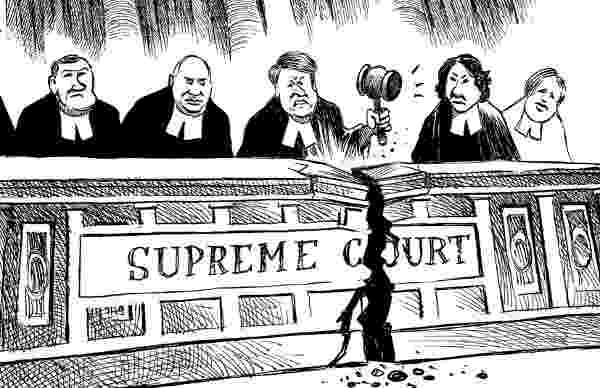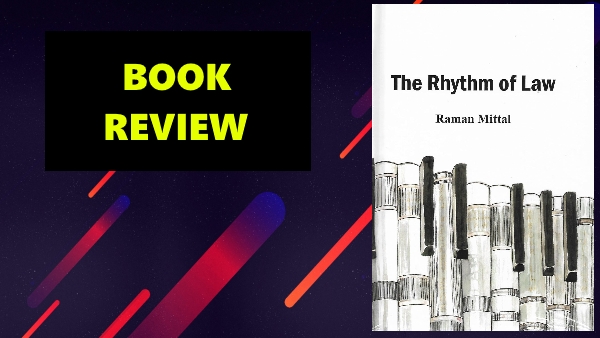In State of Haryana vs Raja Ram case, by an appeal by special leave the State of Haryana has assailed the judgment of a learned Judge of the High Court of Punjab & Haryana acquitting the respondent, Raja Ram on appeal form his conviction by the Additional Sessions Judge under Section 366 IPC and sentence of rigorous imprisonment of 1-1/2 years with a fine of Rs. 500/- and in default rigorous imprisonment for two months.
BENCH: DUA, I.D.
Buy Best Book of IPC by K.D. Gaur (Latest Edition)
BRIEF FACTS OF THE CASE
- That the prosecutrix named Santosh Rani, aged about 14 years and daughter of Narain Das, was the victim of the offence. According to the prosecution of the co-accused, Jai Narain once visited Mr. Das’ house to treat his ailing sons. After their treatment, the co-accused used to visit Mr. Das’s house often and apparently began to cast an evil eye on the prosecutrix.
- On seeing the co-accused talking to her daughter, Mr. Das felt suspicious, so he forbade him to further visit his house. Having being prohibited from visiting Mr. Das’s house, the co-accused started sending messages to the prosecutrix through Raja Ram (herein, referred as respondent).
- On dated 04th April 1968, the respondent contacted the prosecutrix to accompany him to Jai Narain’s house and later sent his daughter to convey the message that she should come to the house of Raja Ram at midnight. When the prosecutrix came to the respondent’s house, he took her with him and handed over to the co-accused and he himself returned to his own house.
- After being failed in his search of the missing daughter, the father of the prosecutrix lodged a complaint in the police station. Confirmed suspicion was cast in this report on the co-accused, who was stated to be an unpleasant character and absent from the village at the same time.
- On 13th of April 1968, the daughter was identified and the co-accused was taken into custody. During the investigation, it was found that the prosecutrix has been seduced as a result both the co-accused and the respondent were convicted under under Section 366 and 376 of IPC, respectively.
- Both the convicts appealed to the High Court of Punjab & Haryana. The appeal of Jai Narain was dismissed by the concerned court, but the latter was acquitted of his charges.
- Accordingly, the said appeal was preferred by the State of Haryana against the order of the respondent’s acquittal.
Buy IPC Bare Act (Latest Edition)
LEGAL ISSUES
Whether in the face of these facts stated by the prosecutrix Raja Ram could be held to be guilty of offence under Section 366 of IPC?
RATIO DECIDENDI
In order that an accused person be held guilty of offence under Section 366 of IPC, the prosecution must show that the woman was kidnaped or abducted in order that she might be forced or seduced to illicit intercourse or knowing it to be likely that she would be so forced or seduced. In short, the prosecution needs to prove that there had been kidnapping or abduction.
According to Section 361 of Indian Penal Code, 1860 –
“when any person takes or entices any minor under the age of 18 if a female out of the keeping of law guardianship of such minor without the consent of such guardian, commits kidnapping”.
It was contended by the respondent that the girl was neither enticed nor taken by him by the lawful guardianship of her parents. Rather, she herself accompanied him (Raja Ram) and to be with the co-accused (Mr. Narain). Hence, under such circumstances, it could not be held that the girl went with the respondent either by use of force or on account of any kind of persuasion by the respondent.
The above contention was accepted by the learned Judge implying the ignorance of important evidence on records which clearly establishes beyond reasonable doubt that the prosecutrix had been solicited and persuaded by Raja Ram to leave her father’s house for being taken to the co-accused.
The object of Section 361 is to protect the minors from being seduced for improper purposes as to protect the rights and privileges of guardians having the lawful charge or custody of their minor wards. The very essence of this offence lies in the taking or enticing of a minor under the ages specified in this section, out of the keeping of the lawful guardian without the consent of such guardian.
The words ‘lawful guardian’ under Section 361 includes any person lawfully entrusted with the care or custody of such minor or another person. This section does not extend to the act of any person who in good faith believes himself to be the father of an illegitimate child, or who in good faith believes himself to be entitled to the lawful custody of such child unless such act is committed for an immoral or unlawful purpose.
It is important to note in the above section that the consent of the minor who is taken or enticed is wholly immaterial; it is only the consent of the guardian which takes the case out of its purview. Therefore, in view of the present case, it was not at all necessary for the respondent to have himself gone to the house of the prosecutrix to bring her from there on the midnight in question.
It was rather clearly established on the record that it was under the messages being conveyed through the respondent that the prosecutrix left her father’s house on the day of the incident.
DECISION
Considering the above facts and circumstances, it was submitted that the action of the respondent was the proximate cause of the prosecutrix going out of the keeping of her father and indeed but for respondent’s (i.e. Raja Ram) persuasive offer to take her to co-accused (i.e. Jai Narain) the prosecutrix would not have gone out of the keeping of her father who was her lawful guardian, as she actually did.
Hence, there is no scope of doubt that the respondent actively took part in the formation of the intention of the prosecutrix to leave her father’s house as a result the contention on behalf of him that the prosecutrix was easily persuaded to go with him would not prevent him from being guilty of the offence of kidnapping her. Further, the acquittal of the respondent by the High Court was held to be clearly erroneous both on facts and in law, and considering the offence there was a clear failure of justice justifying interference by the concerned court under Article 136 of the Indian Constitution.
Found this case summary useful? Check out other landmark IPC Case summaries here >>> IPC Case Summaries
Check out our YouTube Channel for free legal videos >>> LAW PLANET YT





